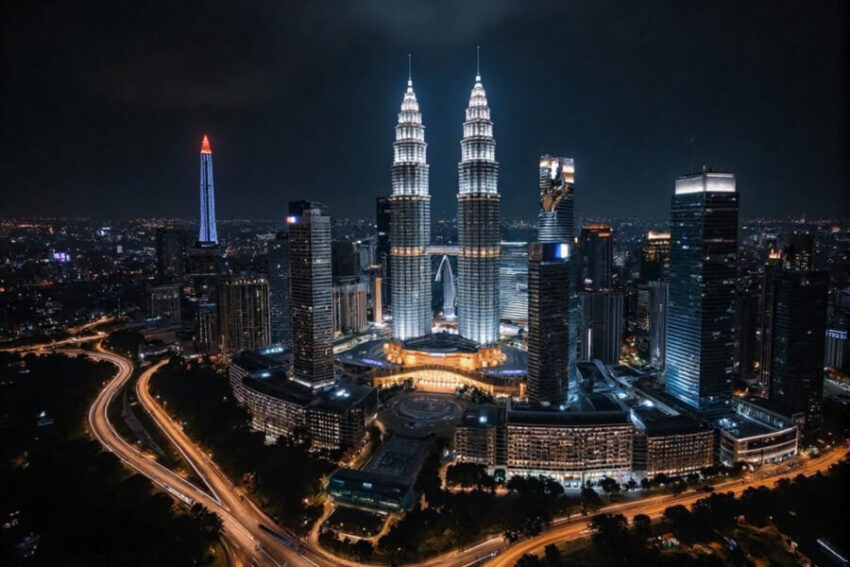Malaysia Leads Global Tourism Shift Towards Sustainability At The 7th World Tourism Conference In Melaka
Malaysia has positioned itself as a global leader in promoting sustainable tourism, demonstrated by its successful hosting of the 7th World Tourism Conference in Melaka.
Malaysia has positioned itself as a global leader in promoting sustainable tourism, demonstrated by its successful hosting of the 7th World Tourism Conference in Melaka. From September 27 to 29, over 700 tourism experts, policymakers, and industry leaders gathered in the historic city to confront the growing environmental and social challenges facing global tourism. By setting the theme of “Sustainable Transformation,” Malaysia emphasized the need for profound changes in the industry’s structure, moving it away from traditional growth models toward a more responsible and inclusive approach. The country’s initiatives, such as the pilot project in Mersing, Johor, and efforts to promote sustainable aviation fuel, directly support this shift. Furthermore, Melaka was showcased as a “living laboratory” for sustainable tourism, proving that economic development and cultural preservation can go hand in hand. Through these actions and its leadership role at the conference, Malaysia has firmly established itself as a key driver in the global transition towards a more sustainable tourism future.
Tourism leaders and policymakers gathered in Melaka, Malaysia, from September 27 to 29 for the 7th World Tourism Conference, setting the stage for a new agenda focused on “Sustainable Transformation.” The event aimed to address the increasing environmental and social challenges facing the tourism industry. With over 700 delegates in attendance, the conference tackled pressing issues such as overtourism, climate change, and economic inequality that continue to affect the sector.
Held alongside the official World Tourism Day celebrations, the conference highlighted the tourism sector’s strong post-pandemic recovery, as it recorded 1.4 billion international arrivals in 2024. The industry’s rebound was viewed as a critical moment to rethink how tourism can develop sustainably without compromising the environment or social structures. The theme of “Sustainable Transformation” emerged as a call for systemic changes to the industry. Speakers underscored the importance of collaboration among industry leaders, policymakers, experts, and local communities in shaping a future where tourism benefits everyone while preserving resources and cultures.
Tourism’s potential as a “powerful driver of transformation” was recognized during the event. However, participants emphasized that tourism must become more sustainable to protect the very places and communities that benefit from it. This central message was repeated throughout the conference, driving home the need for a tourism model that fosters sustainability, equity, and long-term viability.
As part of its commitment to addressing tourism’s impact, the Malaysian government revealed a series of policy initiatives during the event. One significant announcement was Malaysia’s plan to join the UN Tourism International Network of Sustainable Tourism Observatories. The government will launch a pilot project in Mersing, Johor, designed to monitor and manage the environmental and social effects of tourism more effectively. This initiative aims to provide valuable data and solutions for sustainable tourism practices.
Additionally, officials spotlighted Malaysia’s efforts to support digital nomad hubs and sustainable aviation fuel investments. These projects align with the country’s broader strategy to make tourism more inclusive and environmentally conscious. These policy moves were seen as essential to addressing the challenges of modern tourism while creating new opportunities for economic growth and sustainability.
Conference speakers also discussed the key pillars of sustainable transformation, such as empowering women, youth, and marginalized communities through education and access to resources. They stressed the importance of fostering innovation by bridging the digital divide and supporting startups in the tourism industry. Moreover, the conference highlighted the need to strengthen micro and small enterprises to boost local economies, and protect cultural heritage as the foundation of authentic travel experiences. These topics were identified as essential for building a more resilient and inclusive tourism sector that benefits all stakeholders.
Melaka, the host city, was presented as a “living laboratory” for sustainable tourism. As a UNESCO World Heritage site since 2008, Melaka offers an example of how tourism can balance heritage conservation with the pressures of modern economic development and rising tourist numbers. Throughout the conference, Melaka’s approach to sustainable tourism was showcased through various sessions and guided tours that emphasized the city’s inclusive and eco-friendly initiatives.
Participants had the opportunity to experience activities like the Sungai Linggi Eco Cruise, which promotes sustainable tourism practices while highlighting the region’s biodiversity. The Dutch & Heritage Trail, another guided experience, illustrated how cultural assets can drive tourism without compromising their integrity. These activities demonstrated how heritage and environmental sustainability could go hand in hand, benefiting both local communities and tourists.
Melaka’s multicultural history, shaped by Malay, Chinese, Indian, Portuguese, Dutch, and British influences, served as a powerful metaphor for the global tourism industry. Organizers pointed out that the city’s diverse past reflects the dynamic exchange of cultures and power imbalances that are present in global tourism. The city’s layered history offers invaluable lessons on how to create a more inclusive and culturally grounded tourism sector.
The conference underscored the importance of sustainable practices and community-driven initiatives in Melaka. From promoting women’s empowerment to supporting eco-friendly practices, the city has embraced a model of tourism that prioritizes social inclusion and environmental stewardship. By hosting the conference, Melaka served as both a model for sustainable tourism and a symbol of what the global tourism industry could strive toward.
A major highlight of the event was the official launch of Visit Malaysia 2026 (VM2026), the nation’s tourism campaign. The campaign aims to boost the country’s tourism industry, but it also emphasizes the importance of cultural vitality and shared prosperity. The government has committed to measuring the success of the campaign not only by visitor numbers but also by its contributions to the nation’s cultural and economic growth.
Throughout the event, these principles were demonstrated through a variety of public events. The Melaka Entrepreneurs’ Carnival 2025, for example, provided a platform for over 60 local business owners to showcase their products and services. Business matching sessions during the carnival were expected to generate RM10 million in transactions, demonstrating the tangible benefits of tourism for local economies.
Other festivities included the International Kite Festival, which attracted a wide audience, and a traditional zapin dance performance that featured 3,000 participants. A special exhibition was held to honor Enrique de Malacca, a 16th-century Melakan sailor who was part of Ferdinand Magellan’s fleet, further emphasizing Melaka’s rich cultural history and its importance to global trade and exploration.
The conference concluded with Malaysia officially passing the hosting duties for World Tourism Day 2026 to El Salvador. This handover symbolized the global nature of tourism and the shared responsibility of all nations to ensure its sustainable development.
Malaysia led the global tourism shift towards sustainability by hosting the 7th World Tourism Conference in Melaka, where it introduced a new agenda focused on “Sustainable Transformation” and showcased its commitment through concrete actions like sustainable tourism monitoring and green technology investments, positioning the country at the forefront of industry change.
In summary, the 7th World Tourism Conference in Melaka marked a significant moment in the global tourism industry’s shift toward more sustainable practices. The event’s focus on “Sustainable Transformation” emphasized the need for systemic change, collaboration, and the protection of cultural and environmental resources. As tourism continues to rebound, the industry now faces the challenge of ensuring that its growth benefits everyone, from local communities to global travelers.
The post Malaysia Leads Global Tourism Shift Towards Sustainability At The 7th World Tourism Conference In Melaka appeared first on Travel and Tour World


Comments and Responses
Please login. Only community members can comment.